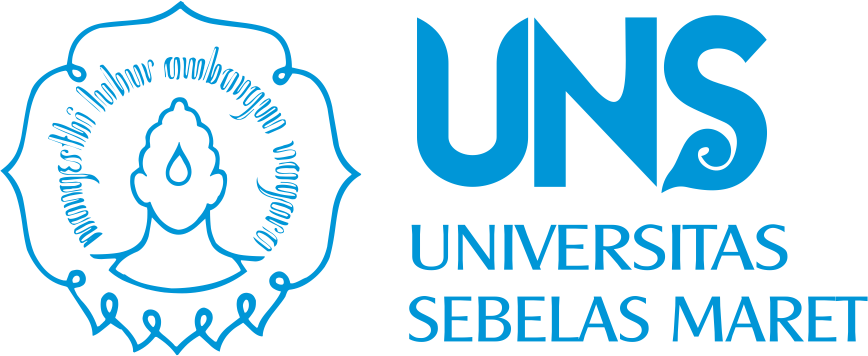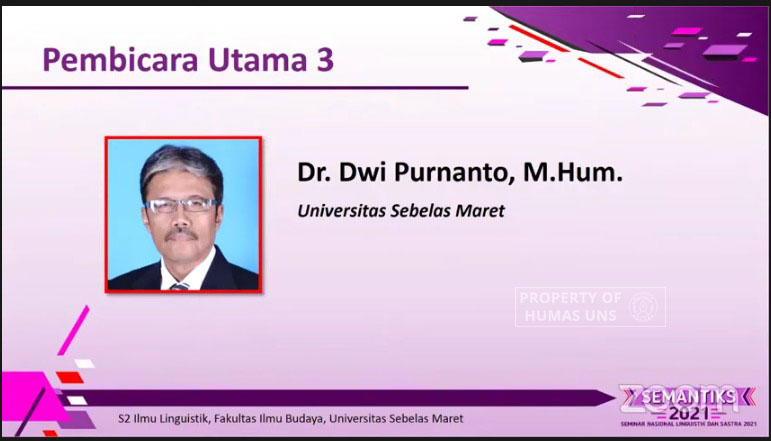UNS — The rapid development in interdisciplinary linguistic could provide a solution for linguistic-related issues, such as forensic linguistics. Forensic linguistic is a branch of interdisciplinary linguistic that is related to the legal field. According to Oilson, forensic linguistics covers linguistic science, criminal code, and legal field developed with linguistic cases with legal implications in criminal and civil codes.
Linguistic cases with legal implications such as blasphemy, defamation, and false testimony open an opportunity for linguistic experts to solve such cases. Forensic linguistic could explain the linguistic fact and legal fact as an aspect in providing evidence in court. The linguistic expert of UNS, Dr. Dwi Purnanto, M.Hum, stated that research in forensic linguistics started in 1990 and continues to develop with the establishment of The International Journal of Speech, Language, and the Law. This branch is considered new in Indonesia, but the development is marked by the growing percentage of dissertations in various universities in Indonesia.
“In 2010, I studied the language in criminal court and the legal interpretation,” Dr. Dwi Purnanto stated on Saturday (5/6/2021).
Legal interpretation in the court process also opens an opportunity for sociology, logic, and experts in other fields. “It opens the opportunity for Bachelor in Linguistic to assist in the trial process,” he added.
Dr. Dwi Purnanto explained that the study on the language used in a criminal trial could cover the language used in the trial, forensic linguistic study, and involved parties. The language used by witnesses, witness investigation, the victims of sexual violence, or language used by lawyers and judges is possible to be researched. However, in forensic linguistics, the studies are more focused on using language in the trial process that could affect court ruling. The involved parties could be people involved in the processing, the defendants, witnesses, counsel, prosecutors, and judges.
Dr. Dwi Purnanto also stated that the development of forensic linguistics in Indonesia needs to be followed by research to affect linguistic development. Forensic linguistic could be applied as the basis for legal considerations in making the Minutes of Examination of investigators and making indictments of prosecutors and judges in criminal trials. Humas UNS
Reporter: Alinda Hardiantoro
Editor: Dwi Hastuti


